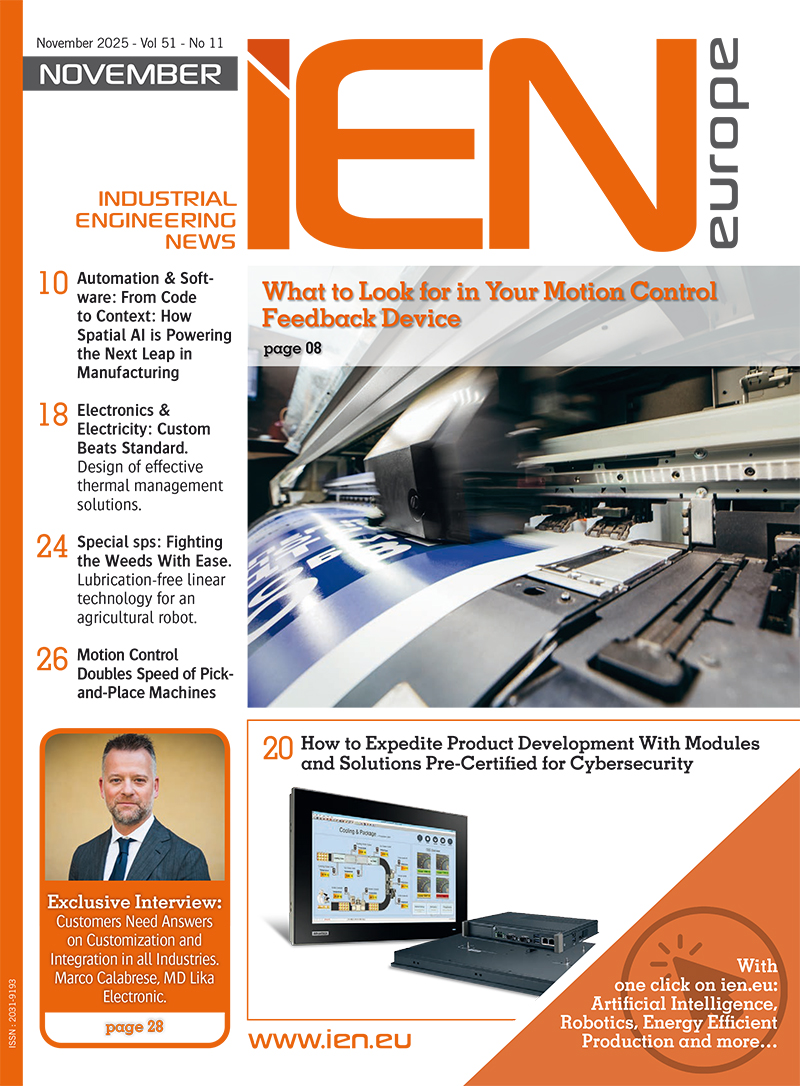IEN Europe: How would you describe the main benefits of an MES?
Francisco Almada Lobo: Let’s clear one thing up first—MES isn’t software. It’s a concept, a capability, a set of functions manufacturers use to execute production and operations. Every manufacturer does MES already... whether it's with Excel, clipboards, or homegrown apps duct-taped together. The difference is how well you're doing it.
Now, modern MES software is what digitizes and automates these core execution functions—like scheduling, work instructions, traceability, WIP tracking, and quality management. And when done right? The benefits are massive:
- Visibility: Real-time insight into what’s happening on your shop floor.
- Traceability: From raw materials to finished goods—every step tracked.
- Productivity: Less time spent on admin, more time making product.
- Quality: Built-in checks and validations reduce defects.
- Compliance: Audit trails and e-signatures made easy.
- Agility: Faster changeovers, adaptive scheduling, and smarter responses to issues.
In short, MES turns tribal knowledge into digital workflows. It gives frontline workers superpowers, managers clarity, and executives confidence. And it sets the foundation for bigger moves like AI, digital twins, and lights-out manufacturing.
IEN Europe: Why does every company, even small ones, need a MES in the process of industrial transformation?
Francisco Almada Lobo: “Need” is a relative term. Technically, no manufacturer needs an MES the same way a fish doesn’t need water filters to survive… but try thriving without it in today's digital ecosystem.
Let’s start with the basics: the core capability of a manufacturer is to manufacture. That means execution isn’t just important—it’s the core function. Everything else—planning, procurement, quality, supply chain, even finance—exists to support and enable that core: getting the right thing made, the right way, at the right time.
And if you’re trying to digitally transform your business, if you want to plug in all the cool tech like AI, predictive analytics, autonomous scheduling, or even digital twins—guess what they all rely on?
Solid execution data. And that means doing MES right—not just checking a box that says you have one.
MES isn’t just another system. It’s the digital foundation for everything that touches production. If your execution is a mess—running on clipboards, spreadsheets, or duct-taped workarounds—then all those shiny technologies won’t help. They’ll just amplify the chaos.
Small manufacturers often think they can wait. But that’s like waiting to build a foundation after the house is up. MES done right gives you the structure, visibility, and control to build something scalable, resilient, and ready for the future. It’s not about getting MES.
It’s about getting MES right.
IEN Europe: How complex is the process of integration?
Francisco Almada Lobo: It can be complex—but it doesn’t have to be. The trick is to treat MES like a program, not a project.
Yes, you’ll need to connect MES to machines, ERP, quality systems, maybe even warehouse and lab systems. But you don’t have to do it all at once. Start with a focused scope, deliver quick wins, and build momentum.
Integration complexity depends on:
- Your existing systems and how modern (or ancient) they are.
- How much standardization exists across your sites.
- How clean and structured your data is.
- Whether you’ve picked a flexible MES platform or a rigid one.
Smart manufacturers don't try to eat the elephant. They carve out logical phases. Get one line, one process, or one plant running well—and replicate. Bonus points if your MES supports out-of-the-box connectors, REST APIs, or OPC UA—it makes the plumbing much easier.
Bottom line? MES integration isn’t rocket science. But it’s not plug-and-play either. You need strong leadership, realistic timelines, and an MES partner who’s done this before.
Get those right, and integration goes from scary to scalable.
IEN Europe: Thanks for your time and insights!

























